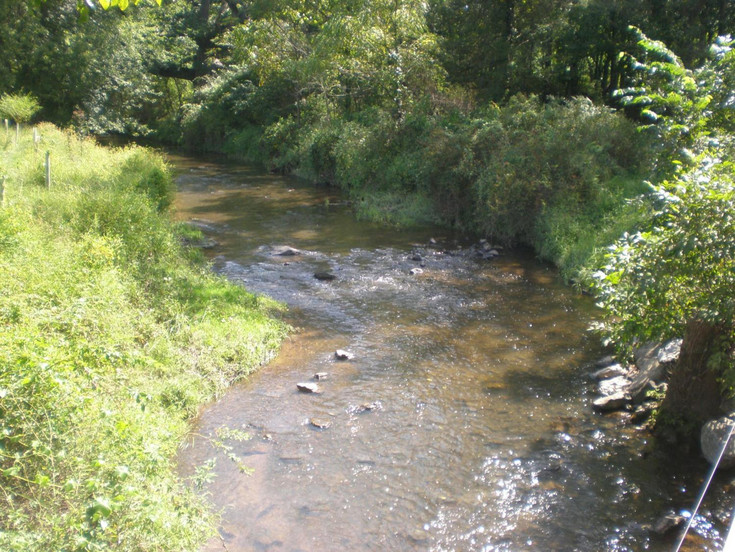25.09.2023 - Streams are warming rapidly and losing oxygen faster than the oceans

[Translate to English:] (c) Penn State
The study by the international research team with BOKU participation was published in the current issue of the renowned journal Nature Climate Change.
"We know that climate warming has led to warming and oxygen loss in the oceans, but we didn't expect this to happen in flowing, shallow waters. This is the first study to take a large-scale look at temperature changes and oxygen depletion in flowing waters - and the results show significant impacts on water quality as well as the health of aquatic ecosystems," said corresponding author Li Li, professor of civil and environmental engineering at Pennsylvania State University in the United States. The international team of researchers found that of 580 rivers in the United States, as well as 216 rivers in Central Europe, 87% experienced warming and 70% experienced oxygen loss from 1981 to 2019.
The study also found that urban rivers warmed the fastest in the recent past, while agricultural rivers showed the slowest warming but the fastest oxygen depletion. Using a specially trained machine learning model, it was predicted that rates of change in terms of temperature increase and oxygen decrease would increase in the future. In the next 70 years, specifically in the U.S., certain fish species could become completely extinct due to prolonged periods of very low oxygen concentrations, which Li said would threaten aquatic diversity in general. In any case, he said, the developments are alarming.
BOKU's focus was on data acquisition and processing for the project area in Central Europe. Using the CMIP6 climate projections (Coupled Model Intercomparison Project, Phase 6), the trend of oxygen depletion in streams in Central Europe was estimated up to the year 2100. "On the part of BOKU, an efficient algorithm for the extraction and aggregation of the CMIP6 climate projections was elaborated, since due to the size of the study area in combination with a large number of catchments, a very large volume of data (Big Data) had to be processed," says Christoph Klingler from the Institute of Hydrology and Water Management at the University of Natural Resources and Life Sciences, Vienna.
In contrast to the flowing waters in the USA, there is hardly any danger of very low oxygen concentrations in the Austrian flowing waters studied (provided there are no other anthropogenic circumstances such as very high nutrient inputs or organic pollution), "nevertheless, in Austria in the current century, under the auspices of the climate scenarios studied, an almost universal increase in temperature and a decrease in oxygen concentrations in flowing waters can be expected," emphasizes the BOKU hydrologist. Complete glacier recession - which would mean a further increase in temperature in some water bodies - is not even implied in the results of the study. These circumstances would be detrimental to aquatic fauna, among others, as their oxygen demand usually also increases with rising water temperature. "One consequence of this is, for example, the shift of fish regions toward the spring, which will result in a reduction of the trout region in particular," Klingler concludes.
The article "Widespread deoxygenation in warming rivers" in Nature Climate Change can be read online at https://doi.org/10.1038/s41558-023-01793-3
Scientific contact
DI Christoph Klingler
University of Natural Resources and Life Sciences Vienna
Institute for Hydrology and Water Management
Email: christoph.klingler@boku.ac.at
Phone: 01 47654 81614
